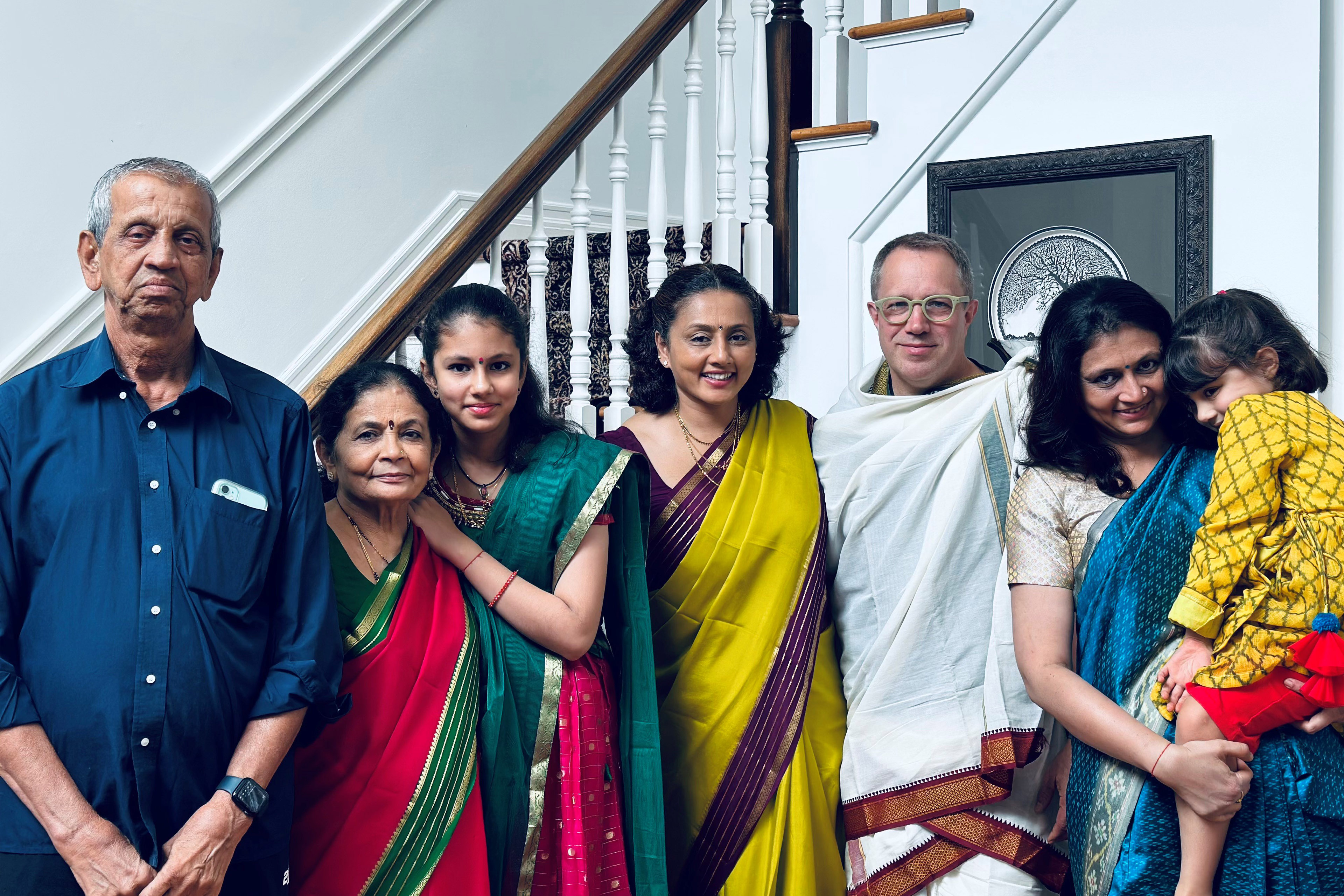In our Real leaders. Real stories. series, IBM VP of Tax Kanthi Morrissey shares how a love of learning has been a driving force in her career.
Kanthi Morrissey was one of those kids who liked Sunday night, because it meant she got to go to school the next day. “I enjoyed learning for learning’s sake. It was not about just getting the highest score. It was, ‘I get to learn!’”
“I'm still like that.”
As VP of Tax at IBM, Kanthi has relied on her love of learning to understand and successfully navigate complex topics like international tax laws and tax operations. She leads a large global team and continues to acquire knowledge every day.
“IBM is a dynamic company. Even today, after almost 20 years in the IBM Tax department, I’m still learning. We’ve been transforming, so nothing is as it was yesterday. It keeps us on our toes,” she says.
I’ve never had a boring day in the last two decades.
Growing up in Bangalore, India, Kanthi and her younger sister were supported and encouraged by their parents to value their self-worth and independence. While they were raised in a conservative Hindu home, Kanthi recalls her parents went against convention, teaching their daughters that girls were no less than boys. Kanthi excelled academically.
Kanthi earned a degree in commerce from Bangalore University and remarkably scored in the top 50 of all those being certified as chartered accountants in India. Kanthi’s interest in tax law grew out of her chartered accountancy studies because it seemed complex.
In 2004, she joined a newly created team at IBM India focused on tax compliance and advising on tax issues. She impressed with her work, and a year later attained a role with a regional tax team in Singapore where she worked on a variety of tax issues in the Asia-Pacific region. This is where she realized that to play a strategic role in the tax department of a US HQ company, you need to be in the US.
Kanthi moved to the US two-and-a-half years later, where she started in an advisory role to IBM’s business units, before expanding to take on tax operations, including transfer pricing. Kanthi was eventually made head of the tax department in 2020.
Even though her success was recognized with many expanded opportunities over the years, the “Best of IBM” award she earned for her role in a cross-functional project still means the most to her. “I’ve not had anything else that has happened to me at IBM that made me so proud,” she says. “Being nominated for that was like a joy that has yet to be replicated professionally.”
Looking back on her love of learning and career accomplishments and what she wishes she’d known earlier, Kanthi shares three lessons for people looking to reach to the highest levels of leadership:
1. Actively seek opportunities and then outperform
Kanthi recognized that certain leadership opportunities and strategic roles were only available in the US, so she actively sought them out. She enthusiastically embraced curiosity and showed an interest in expanding her roles.
That willingness to take on new challenges, combined with the support she received from mentors and sponsors at IBM, fostered her career progression. Once in a new role, Kanthi drew from her love of learning, curiosity and talent to excel.
Success followed a pattern: “I worked hard to perform beyond expectations to earn the opportunity,” she recalls. “My goal was to show them I can do more, and so I focused on succeeding at any challenge they gave me. Basically, they saw that I could succeed with whatever they gave me, and it has consistently been me saying I can do more.”
2. Be patient and have faith that it will all work out
While she had the confidence to enthusiastically ask for opportunities, including international experience, Kanthi was anxious about how she would perform as part of a strategic team working on impactful projects, especially when she first moved to the US. Her mentor wisely advised her that there would be projects that would give her the opportunity to shine. It happened time and again.
Looking back, Kanthi would advise patience to her younger self. “I remember points in my career thinking, where am I going? what am I going to end up as? I feel like if I was just a bit more patient, I wouldn’t have put that much stress on myself — and sometimes on others.”
Today, she’s happily married with a 7-year-old daughter. Her faith, family and a strong support network (combined with a regular yoga practice) keep that apprehension at bay.
“My husband is my rock. That gives me this freedom to be the best I can be at work,” she says. “I literally had no faith in all of this, as I was growing up, and I wish I had had a little more faith then, because it worked out.”
3. Focus first on culture and communication
“When I made it to the executive level, I thought I had a lot to prove,” Kanthi recalls. “What I soon realized is, what I thought being a leader was is not really what it is. It’s more of leading the way, motivating the team to work together toward a goal we all want to achieve. That took a lot of learning.”
For Kanthi, who grew up as a self-described bossy, protective sister who would become a standout, learning how to be a leader was a new challenge that she embraced.
Kanthi describes herself as “intense” and “very focused on outcomes,” who wants to push her team to reach their highest potential. Earlier in her career as a leader, a mentor took her aside to offer counsel.
“He said, ‘You remind me of myself — and that’s not a compliment,’” she recalls. “He said, ‘You have to learn to lead with empathy. I hope you do that faster than I did.’ And that was great advice.”

Kanthimathi Morrissey's family
In my role as a leader, I continuously focus on performance feedback. Being able to give and receive feedback in a respectful manner is priceless. It’s always about the work — making sure my team understands what we’re trying to do and why we’re trying to do it.
She wants her team to think outside of their respective areas of expertise, to look at issues from a broader perspective, to try to ensure all angles are covered and delivering the best results for the company.
Today, Kanthi feels that she is a better leader, a better motivator and, crucially, someone who lets people know that it’s OK to make a mistake and own up to it.
“I want people to be able to make a mistake here and there, own up to it, learn from it and move on, instead of hiding it because they’re afraid of what the consequences will be.”
Corporate tax law is in flux. Artificial intelligence and technology are rapidly changing how people do their jobs.
In Kanthi’s experience, tax professionals tend to approach this sort of uncertainty with one of two views, either fearing it or embracing it.
Understanding what got her to where she is today, it’s easy to see where Kanthi stands.
“It’s all so interesting,” she says, adding that there is a lot that she and her peers in significant companies can do to influence an effective tax policy. “It’s an opportunity to leave a legacy.”
“I had the privilege of taking leadership of a world-class tax team at IBM. I want to leave behind a tax team that’s even more capable of operating effectively and innovatively — ahead of other tax teams, if I can.” And always learning.
About Kanthi
- "Kanthi Morrissey, VP of Tax at IBM, reflects on her notable career progression powered by a lifelong love of learning and how demonstrating her diverse capabilities contributed to her advancement.
- “Success for me has always been, am I contributing to the success of my team and IBM? It’s not money, nor the title. Am I growing? Do I have a seat at the table in shaping where the company’s headed?”

